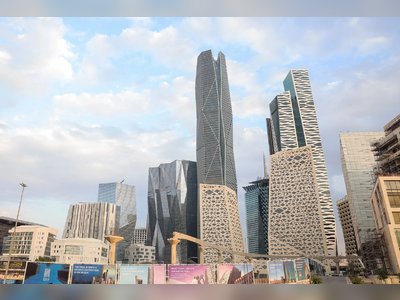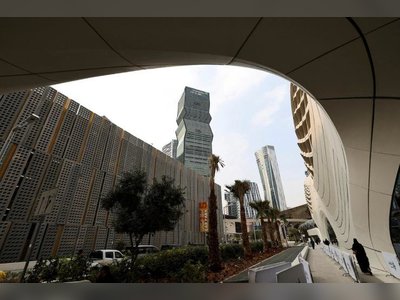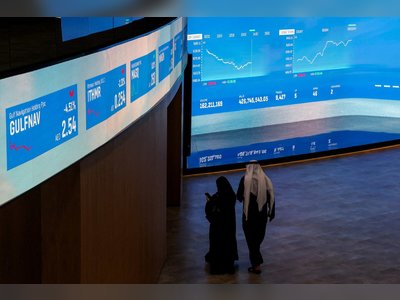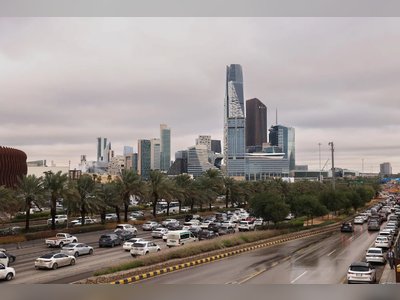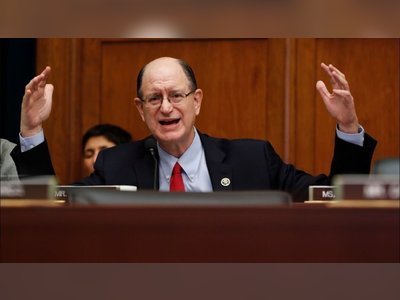
Tunisian president’s backers say ‘yes’ to proposed constitution
With many opponents of Tunisia’s proposed new constitution unlikely to vote in Monday’s referendum on whether to approve the document, the path is open for supporters of the country’s President Kais Saied, to vote “yes”, and make one of the biggest changes to the country since its revolution in 2011.
While Saied was criticised by the international community and his internal opponents, many Tunisians, blaming the country’s economic decline on the political elite, rejoiced when he sacked the government and froze parliament on July 25, 2021.
“For young people, it was the most important thing to happen since the revolution,” said Mohammed Cherif, as he explained why he intends to vote yes in the upcoming referendum.
The 35-year-old Cherif is old enough to remember the pre-revolution regime of Zine El Abidine Ben Ali, and hails from Sidi Bouzid, where the revolution began back in December 2010.
He is one of many Tunisian unemployed graduates.
“I studied finance at university and used to work for an insurance company until the pandemic and then I lost my job,” Cherif told Al Jazeera.
With no income, he was forced to give up the life he had built for himself in the capital, Tunis, to return to Sidi Bouzid, in the country’s poorer interior, and live with his family.
Cherif says that for most “yes” voters, it is not about the constitution itself, but “a vote of confidence in Kais Saied”.
That support for Saied, a political outsider who was voted in as president in 2019, has sharply declined since his initial suspension of parliament last July, particularly after he announced in September that he would rule by presidential decree.
According to Tunisian data analyst group Insights TN, the percentage of people surveyed who saw Saied’s July 25 move to suspend parliament as a positive “correction” of Tunisia’s political course has declined from 60 percent last August to only 35 percent in February.
However, according to the polling, despite high levels of pessimism about Tunisia’s economic future and low approval ratings for Saied, he remains the most popular choice for president should an election be called.
No motivation
There is little enthusiasm for the new constitution; fewer than 450,000 of Tunisia’s 12 million citizens participated in an online consultation designed to allow Tunisians to provide their views on the constitution, which concluded in March.
Cherif believes that there will be a low turnout for the referendum not least because there is very little campaigning either way.
“There’s nobody out motivating people to vote. A referendum is a concept, not a person. In the elections, we could see the candidates debate live on TV,” Cherif said.
Kaother el-Kouki, a banking professional from a chic Tunis suburb, has supported Saied since the 2019 election campaign and runs a pro-Saied Facebook page that regularly lambasts his opposition with acerbic memes.
Unlike many, she says she has studied the constitution assiduously.
El-Kouki is pleased with the sweeping changes Saied has made to state institutions, such as his dissolving of parliament and the Higher Judicial Council, the democratically elected judicial watchdog, which drew criticism from the international community.
The new constitution allows Saied to appoint and dismiss judges, but for el-Kouki, that is a positive.
“They [judges] will no longer be an independent authority, being a judge will become just a job,” el-Kouki told Al Jazeera.
Tunisian judges went on a mass strike in June protesting against Saied’s interference in the judiciary, after he sacked 57 judges.
El-Kouki emphasises her support for articles relating to the right to strike, to work and the protection of women, but is particularly delighted with Article 5 of the draft constitution, which says that only the state must work to achieve the “goals of pure Islam”.
In her opinion, this will bring an end to religious political parties, such as the Muslim Democrat Ennahdha, which have held the most seats in parliament since the 2014 elections.
While Ennahdha says it reached across the aisle and worked with its rivals, the opponents blame it for many of Tunisia’s post-revolution woes.
El-Kouki says she is drawn to Saied’s often taciturn character.
“He doesn’t try to please anyone,” she said, “with this new constitution, he has closed the door to profiteers. He has created the role of the people’s president.”
Despite that, el-Kouki confessed that her campaign group has never met Saied.
“We just listen [but] he is the only one who can truly translate what the people want,” she added.
That enthusiasm is often transferred online, where social media has become the main tool for campaigning by all sides, with little use of traditional advertising.
Facebook is still the social media heartland for Tunisians of all ages, with memes and angry exchanges flying back and forth on pages and within groups.
Some Tunisians have decided to withdraw from Facebook, to escape what has been described as a toxic, hate-filled environment.
‘Mood of exhaustion’
Monica Marks, assistant professor of Arab Crossroads Studies at the Abu Dhabi campus of New York University, who has been interviewing people from Tunisia’s marginalised interior governorates of Kairouan, Gafsa and Sidi Bouzid about their view of politics and the referendum, told Al Jazeera she has observed “a general mood of exhaustion”.
“It is ‘left-behindedness’ and revolutionary dreams deferred that bring these people to Saied,” said Marks.
“[There is a] blanket of forgetfulness when it comes to recognising and remembering what a momentous event the creation of the 2014 constitution was,” Marks added, referring to the constitution Saied seeks to replace, which guaranteed freedoms and split power between the president and the prime minister.
According to one of Marks’s interviewees, Saied has changed people’s attitudes to the writing and purpose of constitutions “because Saied changed the 2014 constitution so casually”.
Saied, who won the presidential election on an anti-corruption ticket, has remained on brand.
“He’s seen as the scrappy cleaner-upper,” Marks explained, adding that Saied’s supporters see the new constitution’s purpose as to clean up the country and that once that is done they can write a new constitution.
“I met people that buy into the notion that Saied still represents change, something they’ve not seen before and they’re wanting to try things out,” Marks said.
That is certainly true for people like Cherif.
“The hybrid parliamentary system failed, and before that Ben Ali’s system failed,” he said. “That was a system of dictatorship, but we have never tried a true presidential system.”

